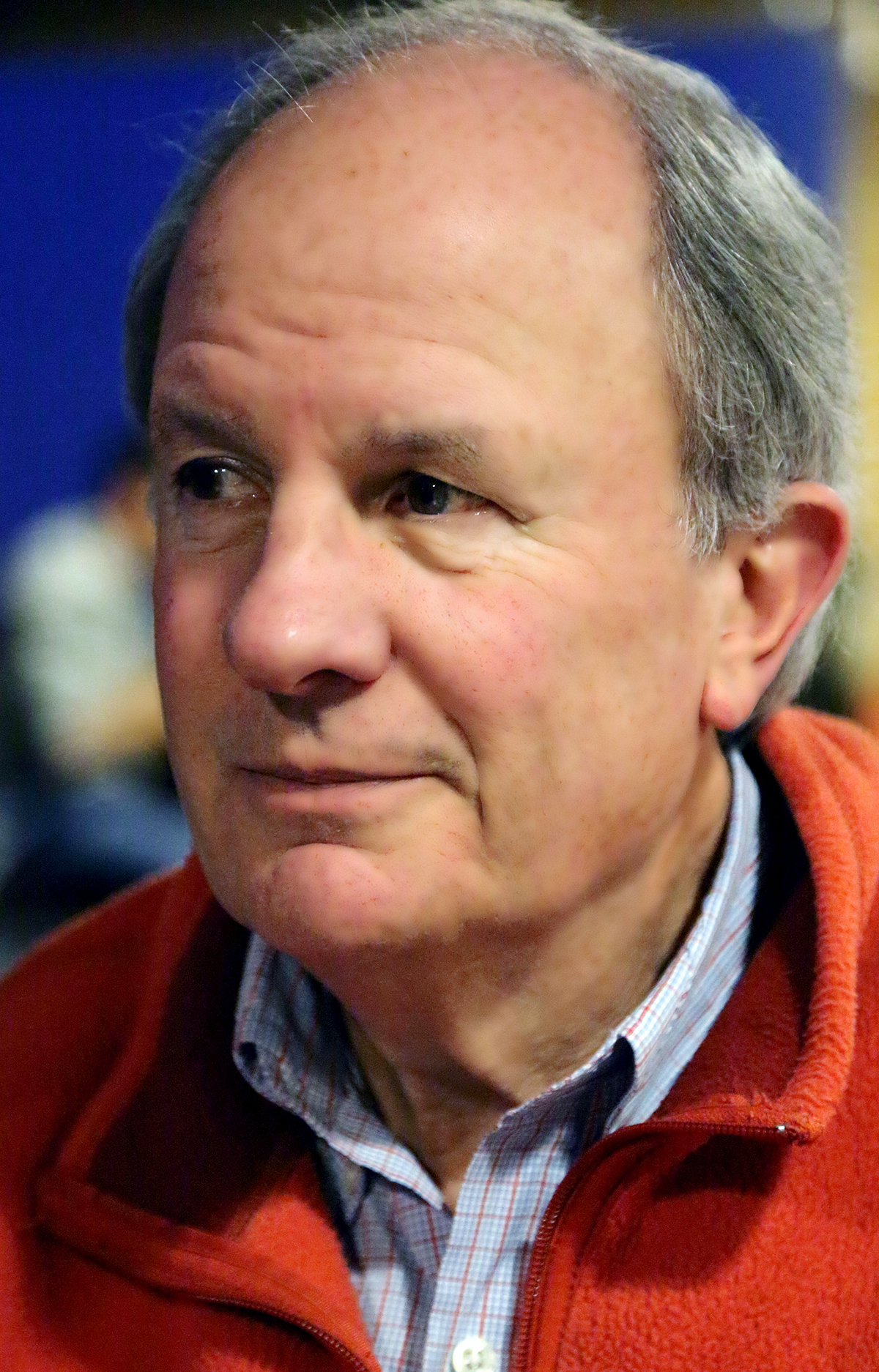For Week Five, the Chautauqua Writers’ Center will welcome Todd Davis and John Thompson as its writers-in-residence.
Davis will serve as poet-in-residence. He and his students will learn how to let dreams inspire their poetry. Thompson will serve as prose writer-in-residence and will work with his students to craft stories with cross-generational appeal.
Davis’ workshop is called “Dreaming a Poem,” and Thompson’s workshop is called “Writing Children’s Book for a Wider Audience.” The two authors will also give readings at 3:30 p.m. Sunday on the porch of the Literary Arts Center at Alumni Hall.
Thompson will be teaching at the Writers’ Center for the first time. He is the author of multiple novels, including Armageddon Conspiracy and the Felony Bay series, which has two entries to date. The series is meant to be enjoyed by both children and adults, Thompson said, and he’ll use his experience writing for a broader audience to help his students. He said the market for children’s and young adult books is completely different from what it used to be.

“Today, writing and marketing are so intertwined and interlinked,” Thompson said.
A book such as To Kill a Mockingbird might have difficulty finding the right audience today, Thompson said, even though it has cross-generational appeal. People might object to some of the book’s content for an 8- to 12-year-old reader, but because of Scout’s age, a publisher would want to market it to a younger audience.
“I think it’s problematic, but I also think it denies the reading public of books like Oliver Twist, David Copperfield, The Adventures of Tom Sawyer and The Adventures of Huckleberry Finn,” Thompson said. “These are all books with young protagonists, but they were intended to be enjoyed by all ages.”
Thompson said books that draw in readers of all ages are beneficial to everyone because they can foster conversation across generations. He said it’s something he tries to do with his Felony Bay series.
“I’m choosing topically to write about young characters and to write a book that’s written in a way that’s appropriate for all ages,” Thompson said. “But at the same time, the things that will make a book good are characteristics that any good novel shares: good characters, good language, well-plotted action.”
He and his students will work on all of these elements, Thompson said, and they’ll spend the last day of the workshop discussing publishing strategies.
Davis is the author of five poetry collections, the most recent being Winterkill. He teaches creative writing at Penn State Altoona and is returning to the Writers’ Center for the fourth time.
People tend to associate poetry with nonfiction, Davis said, because they believe that poems are mostly inspired by real-life experiences.
Davis said it’s not so simple.
“Poets often make up — wholesale — things that are going on in their poems, or they borrow from many parts of their lives or other people’s lives to create things,” Davis said. “Fabulistic things often happen in poems, things that could not happen in reality. Poetry often works through associational thinking, not necessarily linear thinking or rational thought. So there are leaps.”

Those leaps are ones that people take when they’re asleep, Davis said, which is why he and his students will look to their dreams as inspiration for their poetry.
“I’m hoping that as they get to focus on how we write about dreams, that will free them up to create,” Davis said. “When I say ‘create,’ I don’t just mean make a poem — but creating the content of the poem and the texture of the poem wholesale from their imagination in ways they normally wouldn’t.”
This type of writing can be seen in ancient poems, Davis said.
“When you think of the earliest long narrative poems such as the Iliad and the Odyssey, obviously, there are mythological creatures in those poems that did not exist in the real world, yet that fabulism serves those poems quite well,” Davis said.
Davis hopes his students will come away from his workshop with the feeling that they’re working at a higher level than they were previously. Davis said what he takes away from the workshop experience is seeing students find joy in creating a new poem.
“Seeing people make poems and read their poems aloud is always a thrill as a teacher,” Davis said.
Davis and Thompson will also give Brown Bag lectures on the porch of Alumni Hall during Week Five. Davis’ Brown Bag, called “The Nature of Contemporary Appalachian Poetry,” will be at 12:15 p.m. Tuesday, and Thompson’s Brown Bag, called “Freedom of the Imagination: The 28th Amendment,” will be at 12:15 p.m. Friday.




